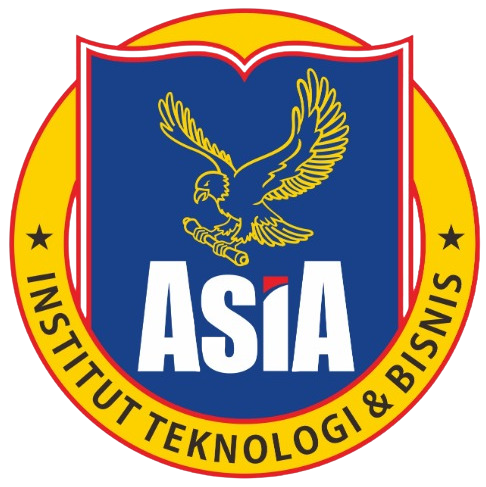THE ROLE OF MOTIVATIONAL LANGUAGE AS A MODERATION BETWEEN VARIOUS BEHAVIOR KNOWLEDGE OF WORK BEHAVIOR INNOVATIVE AND JOB SATISFACTION
DOI:
https://doi.org/10.32815/jibeka.v18i2.2179Keywords:
knowledge sharing behavior, motivational language, job satisfaction, innovative work behaviorrArticle Metrics
Abstract
The purpose of this study was to explore the extent to which the influence of knowledge sharing behavior on innovative work behavior and employee job satisfaction with motivational language as a moderating variable. Hypothesis testing was tested using STATA analysis. The tests used include validity analysis, reliability analysis and regression hypothesis testing. Data collection was carried out by distributing questionnaires to 45 employees at PT Serumpun Indah Perkasa. The results of the study found that knowledge-sharing behavior has a positive effect on innovative work behavior, while knowledge-sharing behavior has a negative effect on employee job satisfaction. Furthermore, motivational language is a moderating variable of the relationship between knowledge sharing behavior and innovative work behavior.
Downloads
References
Afsar, B. (2016), “The impact of person-organization fit on innovative work behavior: the mediatingeffect of knowledge sharing behavior”, International Journal of Health Care Quality Assurance,Vol. 29 No. 2, pp. 104-122.
Aichhorn, N. and Puck, J. (2017), “‘I just don’t feel comfortable speaking English”: foreign languageanxiety as a catalyst for spoken-language barriers in MNCs”, International Business Review,Vol. 26 No. 4, pp. 749-763.
Akhavan, P., Rahimi, A. and Mehralian, G. (2013), “Developing a model for knowledge sharing inresearch centers”, VINE, Vol. 43 No. 3, pp. 357-393.
Akhavan, P., Hosseini, S.M., Abbasi, M. and Manteghi, M. (2015), “Knowledge-sharing determinants,behaviors, and innovative work behaviors: an integrated theoretical view and empiricalexamination”, Aslib Journal of Information Management, Vol. 67 No. 5, pp. 562-591.
AlShamsi, O. and Ajmal, M. (2018), “Critical factors for knowledge sharing in technology-intensiveorganizations: evidence from UAE service sector”, Journal of Knowledge Management, Vol. 22No. 2.
Amjed, A. and Tirmzi, S.H.S. (2016), “Effect of humor on employee creativity with moderating role oftransformational leadership behavior”, Journal of Economics, Business and Management, Vol. 4No. 10, pp. 594-598.
Bandura, A. and Walters, R.H. (1977), Social Learning Theory, Vol. 1, Prentice hall, EnglewoodCliffs, NJ.
Bandura, A. (1977), “Self-efficacy: toward a unifying theory of behavioral change”, PsychologicalReview, Vol. 84 No. 2, pp. 191-215.
Bandura, A. (1978), “The self-system in reciprocal determinism”, American Psychologist, Vol. 33 No. 4,p. 344.
Bandura, A. (1997), Self-Efficacy: The Exercise of Control, Macmillan.
Berry, H. (2017), “Managing valuable knowledge in weak IP protection countries”, Journal ofInternational Business Studies, Vol. 48 No. 7, pp. 787-807.
Cheng, C.-Y. and Tan, Y.W. (2017), “Intercultural experience and creativity”, The InternationalEncyclopedia of Intercultural Communication, pp. 1-12.
Chowhan, J., Pries, F. and Mann, S. (2017), “Persistent innovation and the role of human resourcemanagement practices, work organization, and strategy”, Journal of Management andOrganization, Vol. 23 No. 3, pp. 456-471.
Cummings, J.N. (2004), “Work groups, structural diversity, and knowledge sharing in a globalorganization”, Management Science, Vol. 50 No. 3, pp. 352-364.
Dalati, S. and Alchach, H. (2018), “The effect of leader trust and knowledge sharing on staff satisfactionat work: investigation of universities in Syria”, Business, Management and Education, Vol. 16No. 0, pp. 190-205.
Danish, R., Khan, M., Nawaz, M., Munir, Y. and Nisar, S. (2014), “Impact of knowledge sharing andtransformational leadership on organizational learning in service sector of Pakistan”, Journal ofQuality and Technology Management, Vol. 10 No. 1, pp. 59-67.
Farr, L.L. (2016), Motivating Language and Intent to Stay: An Investigation into the Mediating Effect ofJob Satisfaction in a Backsourced Information Technology Environment, Capella University.
Gutierrez-Wirsching, S., Mayfield, J., Mayfield, M. and Wang, W. (2015), “Motivating language as amediator between servant leadership and employee outcomes”, Management Research Review,Vol. 38 No. 12, pp. 1234-1250.
Hameed, Z., Khan, I.U., Sheikh, Z., Islam, T., Rasheed, M.I. and Naeem, R.M. (2019), “Organizationaljustice and knowledge sharing behavior: the role of psychological ownership and perceivedorganizational support”, Personnel Review, Vol. 48 No. 3, pp. 748-773.
Holub, S. (2003), “Knowledge sharing is a change-management exercise”, Tax Practice Management,Vol. 34 No. 6, pp. 361-363.
Hussain, K., Konar, R. and Ali, F. (2016), “Measuring service innovation performance through teamculture and knowledge sharing behaviour in hotel services: a PLS approach”, Procedia – Socialand Behavioral Sciences, Vol. 224, pp. 35-43.
Javed, B., Bashir, S., Rawwas, M.Y. and Arjoon, S. (2017), “Islamic work ethic, innovative workbehaviour, and adaptive performance: the mediating mechanism and an interacting effect”,Current Issues in Tourism, Vol. 20 No. 6, pp. 647-663.
Kang, M. and Lee, M.-J. (2017), “Absorptive capacity, knowledge sharing, and innovative behaviour ofR&D employees”, Technology Analysis and Strategic Management, Vol. 29 No. 2, pp. 219-232.
Kassem, R., Ajmal, M., Gunasekaran, A. and Helo, P. (2018), “Assessing the impact of organizationalculture on achieving business excellence with a moderating role of ICT: an SEM approach”,Benchmarking: An International Journal, Vol. 26 No. 1.
Kianto, A., Vanhala, M. and Heilmann, P. (2016), “The impact of knowledge management on jobsatisfaction”, Journal of Knowledge Management, Vol. 20 No. 4, pp. 621-636.
Li, X., Wang, J. and Liu, X. (2013), “Can locally-recruited R&D personnel significantly contribute tomultinational subsidiary innovation in an emerging economy?”, International Business Review,Vol. 22 No. 4, pp. 639-651.
Li-Ying, J., Paunova, M. and Egerod, I. (2016), “Knowledge sharing behavior and intensive care nurseinnovation: the moderating role of control of care quality”, Journal of Nursing Management,Vol. 24 No. 7, pp. 94 3-953.
Locke, E.A. (1976), “The nature and causes of job satisfaction”, Handbook of Industrial andOrganizational Psychology,
Malik, M.S. and Kanwal, M. (2018), “Impacts of organizational knowledge sharing practices onemployees’ job satisfaction: mediating roles of learning commitment and interpersonaladaptability”, Journal of Workplace Learning, Vol. 30 No. 1, pp. 2-17.
Mayfield, J. and Mayfield, M. (2012), “The relationship between leader motivating language and selfefficacy:a partial least squares model analysis”, Journal of Business Communication, Vol. 49No. 4, pp. 357-376.
Mayfield, J., Mayfield, M. and Sharbrough, W.C. (2015), “Strategic vision and values in top leaders’communications: motivating language at a higher level”, International Journal of BusinessCommunication, Vol. 52 No. 1, pp. 97-121.
Mayfield, M. and Mayfield, J. (2018), Motivating Language and Workplace Outcomes MotivatingLanguage Theory, Springer, pp. 75-94, 10.1007/978-3-319-66930-4_7.
Puente-Diaz, R., Toptas, S.D., Cavazos-Arroyo, J., Wimschneider, C. and Brem, A. (2019), “Creativepotential and multicultural experiences: the mediating role of creative self-efficacy”, The Journalof Creative Behavior, pp. 1-9.
Rhee, Y.W. and Choi, J.N. (2017), “Knowledge management behavior and individual creativity: goalorientations as antecedents and in-group social status as moderating contingency”, Journal ofOrganizational Behavior, Vol. 38 No. 6, pp. 813-832.
Sarstedt, M., Ringle, C.M. and Hair, J.F. (2017), “Partial least squares structural equation modeling”,Handbook of Market Research, Vol. 26, pp. 1-40.
Suliman, A. and Al-Hosani, A.A. (2014), “Job satisfaction and knowledge sharing: the case of the UAE”,Issues in Business Management and Economics, Vol. 2 No. 2, pp. 24-33.
Yun, Y.-J. and Lee, K.-J. (2017), “Social skills as a moderator between R&D personnel’s knowledgesharing and job performance”, Journal of Managerial Psychology, Vol. 32 No. 5, pp. 387-400.
Downloads
Published
How to Cite
Issue
Section
License
Copyright (c) 2024 Mai Yuliza, Elfitra Azliyanti, Ferry Siswadhi

This work is licensed under a Creative Commons Attribution-ShareAlike 4.0 International License.
Happy reading. Don't be shy to cite








